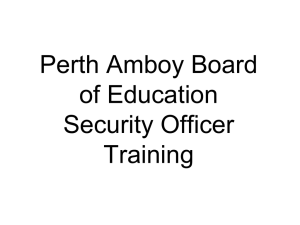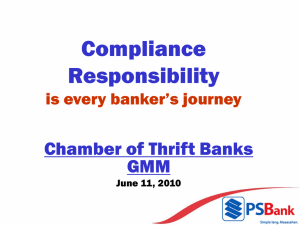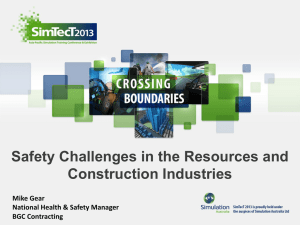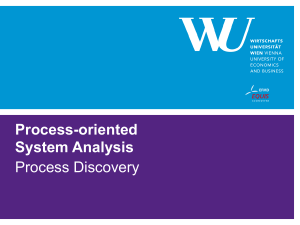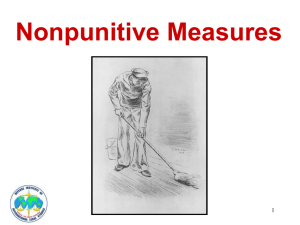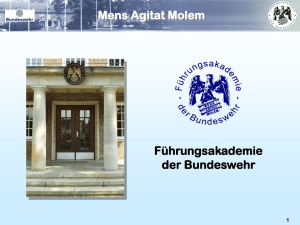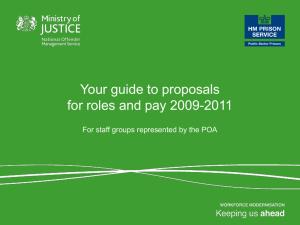Skills and outcomes: the results of the Jersey supervision skills study
advertisement
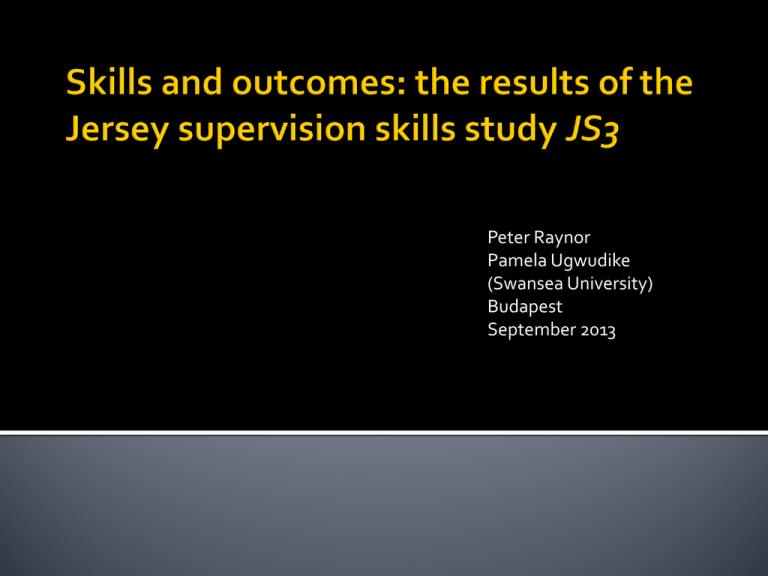
Peter Raynor Pamela Ugwudike (Swansea University) Budapest September 2013 Long-term interest in 1:1 supervision Concerns about implementation of ‘What Works’ in England and Wales, e.g. lack of official interest in individual supervision contributing to programme attrition Concerns about distinction between ‘offender management’ and ‘interventions’ Particular research opportunities presented in Jersey British Channel Island close to France Area 118 sq. km.; population 87,700 Part of Normandy in 933 In 1204 chose to remain with English King when Normandy became French Self-governing with its own legal system Laws in Norman French Agriculture, tourism, finance Low reported crime: 59.6 per 1000 population in 2005 (England and Wales had 112.7) Small: c. 15 officers + support staff Implementing ‘What Works’ since early 1990s Risk/need assessment of all offenders LSI-R (Andrews and Bonta) selected as most practical instrument Resources and programmes to concentrate on medium and high risk Repeat assessment to measure changes in risk Reconviction monitoring to validate assessment Consultancies for implementation and research Risk-need assessment validation Sentencing and reconviction (recurrent) Parish Hall Enquiries (including PhD studentship) Community safety studies (PhD) ongoing Supervision Skills study Youth Justice: Options for Change (included also Glamorgan, Edinburgh, Swansea YOS) New PhD studentship linked to skills study Research partnership with Swansea since 1996 Early evaluations demonstrably benefited Service Officers needed to be convinced to undertake video recording Aimed to video record and assess 100 interviews and compare with outcomes Study was negotiated step by step with officers – hence very slow Strong voluntary principle means rebuilding support for study at intervals Officers confuse the study with management and appraisal (also not unknown for managers to do this) Officers ‘forget’ to record Previous instrument modified (following CREDOS discussion) to be less judgmental in tone and to include more ‘structuring’ skills in addition to ‘relationship’ skills 95 videotaped interviews collected and assessed 14 participating staff Focus on two areas: skills used, and impacts on offending Relationship skills Structuring skills Effective reinforcement Effective modelling Effective disapproval Structured skill learning Problem solving Advocacy/brokerage Effective authority + legitimacy Effective use of authority Modelling and reinforcing anticriminal attitudes Teaching problem-solving skills Effective use of community resources Relationship factors – open, warm, enthusiastic, mutual respect, therapeutic alliance, + communication skills Set up Non-verbal communication Verbal communication Use of authority Motivational interviewing Pro-social modelling Problem solving Cognitive restructuring Overall interview structure Total S N V A M P S C O Does 7C distinguish between officers? Are officers consistent in the skills they use? Do officers who use more skills do so over a wide range of interviews? Ten officers with 5-15 interviews in database Boxplots show median, interquartile range and outliers 10 9 8 7 6 5 4 3 2 1 0 Possible Mean of 88 interviews S N V A M P S C O 10 9 8 7 6 5 4 3 2 1 0 Possible High scorer S N V A M P S C O 10 9 8 7 6 5 4 3 2 1 0 Possible Low scorer S N V A M P S C O Substantial Consistent across a number of interviews (for most officers) Consistent across different types of interviews (for most officers) More evident in ‘structuring’ skills (maybe reflecting social work training of the Jersey officers: they mostly score well on ‘relationship’ skills) Next: outcome measures Based on 75 interviewees with scored interviews and 2-year reconviction follow-up (When same individual was interviewed more than once, repeat interviews were not counted.) Two-year reconviction rates of people interviewed by 7 staff with below-median skill ratings, compared with interviewees of 7 staff with above-median skill ratings (N of staff = 14; N of interviewees = 75) Interviewed by: Not reconvicted Reconvicted % reconvicted Staff using fewer skills 15 21 58% Staff using more skills 29 10 26% p= .004 Not much: initial risk levels for ‘higher-skill’ group were slightly higher (LSI-R 20.1, compared to 17.6 for ‘lower-skill’ group). Scores in higher-skill group changed more on re-assessment (-3.4, p=.003). 1 year 2 years Set up .019 .078 Non-verbal communication .093 .330 ** Verbal communication .160 .263 * Use of authority .147 .169 Motivational interviewing .125 .201 * Pro-social modelling .195 * .094 Problem solving .214 * .254 * Cognitive restructuring .214 * .173 Overall interview structure .145 .131 Total .230 * .272 ** Further studies in other jurisdictions are recommended, including refinement of skills measures This study lends support to the view that practitioners’ skills make a difference Other studies show that effective training improves skills and leads to lower reconvictions (e.g. STICS, STARR, PCS) A cost-effective strategy to improve results? Early stages are covered in: Raynor, P., Ugwudike, P. and Vanstone, M. (2010) ‘Skills and strategies in probation supervision: the Jersey study’, in McNeill, Raynor and Trotter (eds) Offender Supervision: New Directions in Theory, Research and Practice. Abingdon: Willan. Outcomes are covered in ‘The impact of skills in probation work: a reconviction study’, Criminology and Criminal Justice advance access (same authors) For information on the study contact: P.Raynor@swansea.ac.uk For enquiries about use of checklist contact: B.Heath@gov.je


